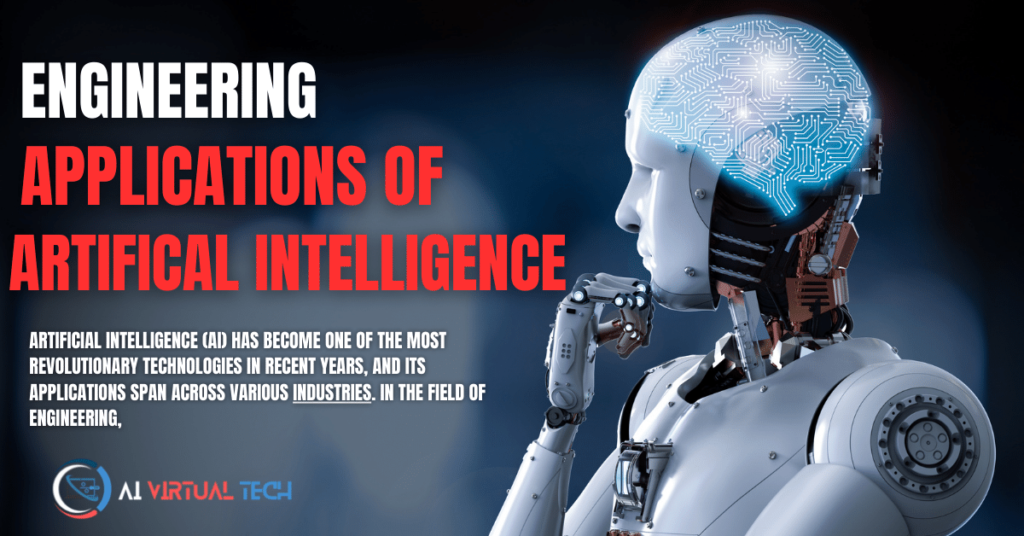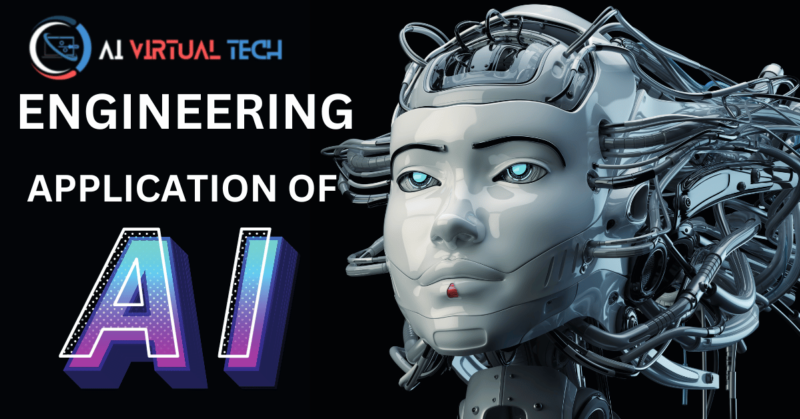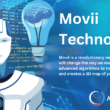Artificial Intelligence (AI) has become one of the most revolutionary technologies in recent years, and its applications span across various industries. In the field of engineering, AI is transforming traditional processes and opening up new possibilities for innovation. From optimizing designs to enhancing automation systems, AI has proven to be a game-changer for engineers around the world. We will explore the exciting world of AI in engineering, uncovering its types, uses, pros and cons, as well as some fascinating real-life applications that are reshaping the industry. So fasten your seatbelts and get ready to embark on an enlightening journey into the realm of Engineering Applications of Artificial Intelligence!
What is Artificial Intelligence?
Artificial Intelligence, or AI for short, is a cutting-edge technology that aims to mimic human intelligence in machines. It involves the development of computer systems that can perform tasks typically requiring human intelligence, such as problem-solving, learning from experience, and making decisions.
There are different types of AI, each with its own characteristics and capabilities. The most common types include:
1. Narrow AI: This type of AI focuses on performing specific tasks efficiently. Examples include voice recognition systems like Siri and virtual personal assistants.
2. General AI: Also known as Strong AI, this type refers to machines capable of understanding and performing any intellectual task just like humans would.
3. Machine Learning: A subset of AI that enables computers to learn from data without being explicitly programmed. Machine learning algorithms analyze patterns in data to make predictions or decisions.
4. Deep Learning: A subfield within machine learning where neural networks are used to process vast amounts of data and learn complex patterns.
In engineering applications, AI plays a crucial role in enhancing efficiency and accuracy across various domains such as design optimization, predictive maintenance, robotics automation, and more.
Types of Artificial Intelligence
Artificial Intelligence (AI) can be classified into various types based on its capabilities and functionality. These different types cater to specific needs and applications in the field of engineering. Here are a few key categories:
1. Narrow AI: Also known as Weak AI, this type of AI is designed for specific tasks or domains, such as image recognition or natural language processing. Narrow AI excels at performing predefined functions but lacks general intelligence.
2. General AI: This is the holy grail of AI development – an artificial intelligence system that possesses human-level cognitive abilities across multiple domains. However, achieving true General AI remains a challenge.
3. Machine Learning: Machine learning is a subset of AI that focuses on training machines to learn from data without being explicitly programmed for each task they perform. It utilizes algorithms to enable computers to make predictions or take actions based on patterns and examples in the data.
4. Deep Learning: Deep learning is a subfield of machine learning that involves artificial neural networks with multiple layers capable of extracting complex features from vast amounts of data.
5. Reinforcement Learning: This approach involves training an agent through trial and error interactions with an environment, where it learns optimal strategies by receiving feedback in the form of rewards or penalties.
6 Natural Language Processing (NLP): NLP enables computers to understand, interpret, and respond to human language input, facilitating communication between humans and machines more effectively.
Each type of Artificial Intelligence has its own strengths and limitations, making them suitable for different engineering applications depending on requirements such as complexity, data availability, computational resources available etc.
How is Artificial Intelligence Used in Engineering?
Artificial Intelligence (AI) has made significant advancements in various industries, and engineering is no exception. In fact, AI is revolutionizing the way engineers design, analyze, and optimize complex systems.
One of the key applications of AI in engineering is predictive maintenance. By utilizing machine learning algorithms, engineers can predict when a piece of equipment or machinery may fail and take preventive measures to avoid costly downtime. This not only saves time but also increases productivity and efficiency.
Another area where AI shines in engineering is automation. Engineers can use AI-powered robots to perform repetitive tasks with speed and precision, freeing up their time for more critical thinking and problem-solving activities.
This leads to increased productivity and allows engineers to focus on more innovative projects.
AI also plays a crucial role in simulation modeling. Engineers can use advanced algorithms to create virtual models that simulate real-world scenarios accurately.
These simulations help them test different design iterations quickly without the need for physical prototypes, saving both time and resources.

Pros and Cons of Using AI in Engineering
Artificial Intelligence (AI) has revolutionized various industries, including engineering. However, like any technology, there are both pros and cons associated with its use in this field.
AI-powered systems can analyze massive amounts of data quickly and accurately, enabling engineers to make informed decisions promptly. This not only saves time but also improves productivity by automating repetitive tasks.
Cost reduction is another advantage of implementing AI in engineering processes. By optimizing resource allocation and streamlining operations through predictive analytics, businesses can minimize wastage and increase profitability.
Ethical considerations also arise when using AI in engineering applications. For instance, autonomous systems that make decisions based on programmed algorithms raise questions about responsibility if an accident occurs due to a machine error rather than human intervention.
Though it’s clear that the benefits outweigh the disadvantages when it comes to utilizing AI in engineering applications!
The advancements brought by this technology have tremendous potential for improving efficiency, safety standards while driving innovation forward within the industry!
Applications of Artificial Intelligence in Engineering
Artificial Intelligence (AI) has made significant advancements in recent years and is now being widely used in various fields, including engineering.
The integration of AI technologies has revolutionized the way engineers approach complex problems and has opened up new possibilities for innovation.
One prominent application of AI in engineering is predictive maintenance. By leveraging machine learning algorithms, engineers can analyze large amounts of data to identify patterns and predict when equipment or machinery may fail.
This proactive approach helps prevent costly breakdowns and improves overall operational efficiency.
AI-powered robotics is also transforming manufacturing processes. Robots equipped with intelligent algorithms can perform repetitive tasks with precision and speed, reducing human error while increasing productivity levels.
In the field of civil engineering, Artifical Intelligence plays a crucial role in optimizing designs for infrastructure projects such as bridges or buildings.
Through generative design techniques powered by machine learning algorithms, engineers can explore thousands of design options quickly and efficiently.
This not only accelerates the design process but also enhances structural performance while minimizing material usage.
The applications mentioned here are just scratching the surface of how artificial intelligence is transforming the field of engineering. As technology continues to advance rapidly, we can expect even more innovative uses for Artifical Intelligence across different branches within this discipline.
Summary
Artificial Intelligence (AI) is a field of computer science that focuses on the creation of intelligent machines. As with any new technology, there are both ethical and practical implications for using Artifical Intelligence in our daily lives. While there are many exciting possibilities for Artifical Intelligence in the future, it is important to consider these implications before implementing AI-based solutions.
Frequently Asked Questions (FAQS)
1. What is Artificial Intelligence (AI)?
Artificial Intelligence refers to the simulation of human intelligence in machines that are programmed to think, learn, and problem-solve like humans. It involves the development of computer systems capable of performing tasks that typically require human intelligence.
2. What are the types of AI?
There are mainly two types of Artifical Intelligence: Narrow or Weak Artifical Intelligence and General or Strong Artificial Intelligence. Narrow Artifical Intelligence focuses on specific tasks, such as speech recognition or image classification, while General Artifical Intelligence aims to replicate human-like intelligence across a wide range of tasks.
3. How is Artificial Intelligence used in Engineering?
Artificial Intelligence has revolutionized engineering by enhancing productivity, automating repetitive tasks, improving accuracy in design and analysis processes, optimizing resource allocation and supply chain management, predicting failures before they occur, and enabling autonomous operations.
4. What are the pros of using Artificial Intelligence in engineering?
The advantages include increased efficiency and productivity, improved decision-making through accurate data analysis, enhanced safety by minimizing human error risks, reduced costs through automation and optimization techniques.
5. Are there any cons associated with using AI in engineering?
Some concerns include job displacement due to automation leading to unemployment for some workers; ethical dilemmas surrounding privacy invasion or biased algorithms; potential security risks if systems get hacked.
6. What are some applications of Artificial Intelligence in engineering?
AI finds applications across various fields including robotics for assembly lines or hazardous environments exploration; predictive maintenance for machinery health monitoring; process optimization in manufacturing industries; intelligent transportation systems for traffic control; energy management systems for optimal utilization.
Conclusion
Artificial Intelligence has revolutionized the field of engineering and continues to pave the way for innovative advancements. Its ability to analyze vast amounts of data, make predictions, and automate processes has greatly enhanced efficiency and productivity in various engineering applications.













